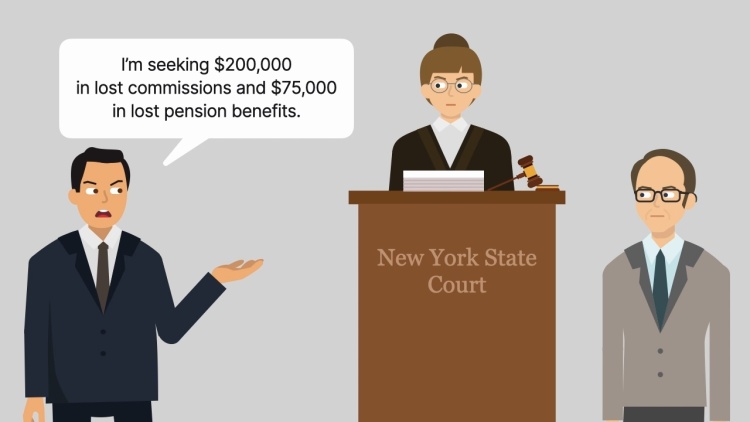Herendeen v. Champion International Corp.
United States Court of Appeals for the Second Circuit
525 F.2d 130 (1975)

- Written by Sara Rhee, JD
Facts
James Herendeen (plaintiff) was a paper salesman for Nationwide Papers Incorporated (Nationwide) (defendant). On May 15, 1969, Herendeen resigned from his position in reliance on a promise from his employer that he would receive a new, written employment contract and continue to receive his benefits. When Herendeen did not receive a new contract, he brought suit in state court against U.S. Plywood-Champion Papers, Inc. (Champion) (defendant) and Nationwide, its subsidiary, alleging that the defendants had sought to defraud him of his benefits. Herendeen sought as damages $200,000 in lost commissions and $75,000 in lost pension benefits. The state court found that the complaint alleged an unenforceable, oral agreement to agree and, therefore, dismissed the case for Herendeen’s failure to state a claim upon which relief could be granted. The state court did not reach the issue of damages. Herendeen later brought suit against Champion, Nationwide, and the trustees and administrators of his pension plan (defendants). Herendeen sought to receive payments he claimed he was entitled to under the regulations of his pension plan. The district court dismissed his claim on the ground of res judicata. Herendeen appealed.
Rule of Law
Issue
Holding and Reasoning (Waterman, J.)
What to do next…
Here's why 907,000 law students have relied on our case briefs:
- Written by law professors and practitioners, not other law students. 47,100 briefs, keyed to 996 casebooks. Top-notch customer support.
- The right amount of information, includes the facts, issues, rule of law, holding and reasoning, and any concurrences and dissents.
- Access in your classes, works on your mobile and tablet. Massive library of related video lessons and high quality multiple-choice questions.
- Easy to use, uniform format for every case brief. Written in plain English, not in legalese. Our briefs summarize and simplify; they don’t just repeat the court’s language.






